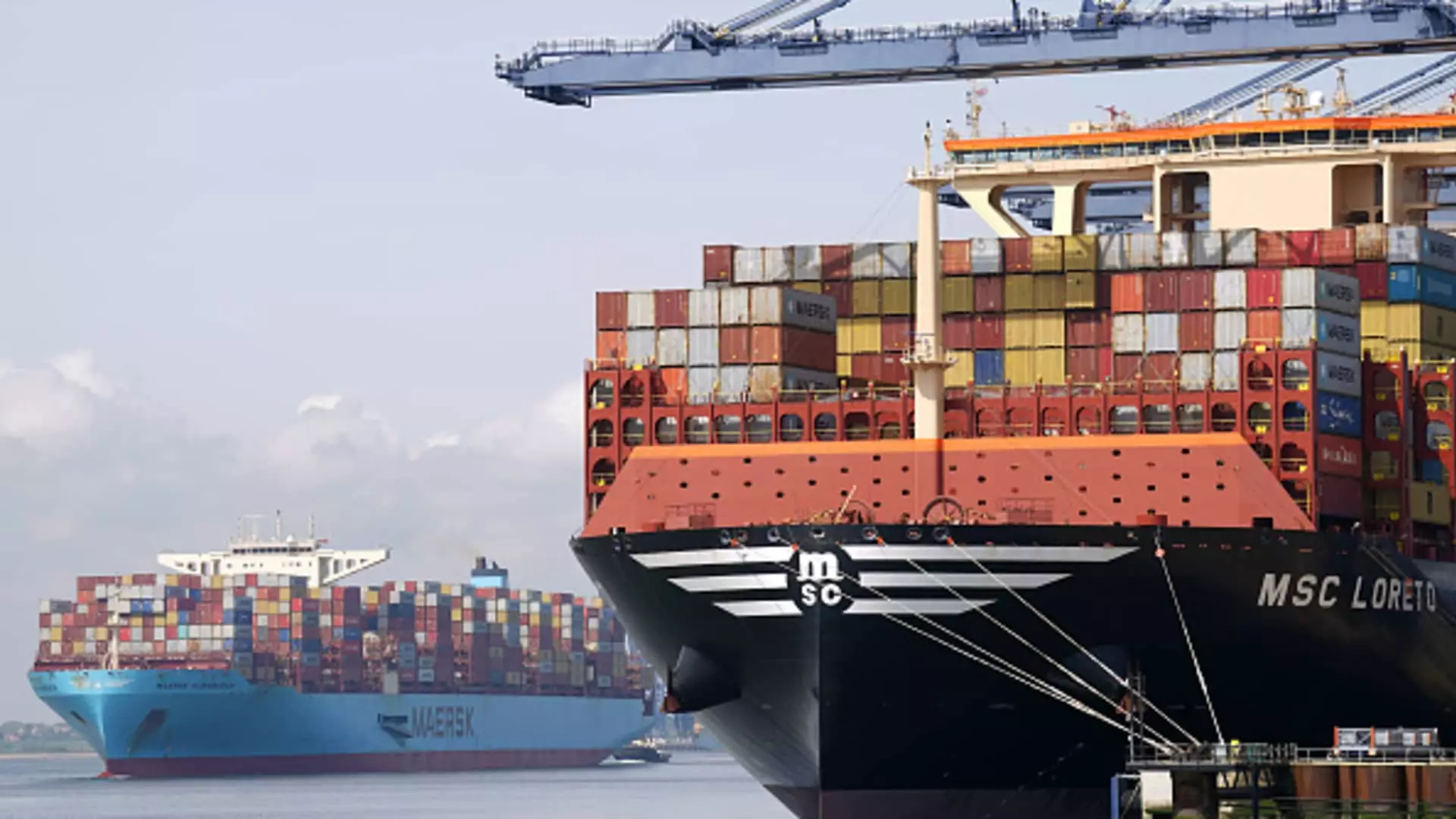As we gear up for the first quarter of 2025’s earnings reports, investors find themselves grappling with a tidal wave of uncertainty—a storm largely conjured by former U.S. President Donald Trump’s controversial tariffs. The economy is holding its breath, as the unpredictable nature of these tariffs has thrown a wrench into what analysts had anticipated would be a smooth earnings season. The magnitude and fluctuating nature of these duties, initiated in April, have rattled markets in ways that even the most pessimistic actors hadn’t foreseen. U.S. relations with the European Union and the U.K. are hanging by a thread as negotiators scramble to shift the burdensome 25% and 10% tariffs hanging ominously over their heads. Meanwhile, the epicenter of concern remains the escalating battle between Washington and Beijing, as the specter of a trade war looms over both economies, threatening repercussions on a global scale.
Indicators from Europe: Early Revelations from Major Players
The early earnings reports from influential companies in Europe set a troubling tone for the upcoming announcements. Luxury powerhouse LVMH has voiced trepidations regarding its brands, feeling the pinch from what it calls a potential “pullback” in spending from its key demographic—the aspirational clientele who propel its sales. Likewise, ASML, a vital cog in the technology industry, emerged from its report commenting that these tariffs have catalyzed a “new uncertainty” surrounding demand—a concerning sign for the global tech sector reliant on endless chip production.
As these companies tiptoe around quantifying the adverse impacts on their operations, an assortment of other European giants, set to announce their earnings soon, prepare for inevitable shocks. Each one stands as a stark reminder of the ripple effects stemming from trade tensions.
The Shipping Sector: Maersk’s Turbulent Seas
Danish shipping titan Maersk is poised to be a revealing case study. Set to publish its first-quarter earnings on May 8, Maersk has seen its shares exhibit unnerving volatility. Investors’ reactions have mirrored the erratic waves created by Trump’s constant changes in tariff policy. Analysts estimate that Maersk’s earnings before interest, taxes, depreciation, and amortization (EBITDA) could plummet from the previous quarter’s $3.6 billion to just $2.3 billion this time around. The company has been vocal regarding the significant negative implications of the tariffs on global stability and trade. Notably, Maersk has expressed the need for clarity on whether countries will counter the tariffs, which could drive a more contentious exchange of duties and negotiations.
Energy Giants Under Siege: Shell’s Predicament
Similarly, Shell’s upcoming results, expected on May 2, face daunting challenges. Fresh from announcing their strategic pivot toward increasing shareholder returns and reducing operational costs, the oil giant is bracing itself for turbulent earnings, projected to dip substantially to $5.14 billion from $7.73 billion year-on-year. Although many hail Shell’s commitment to efficiency under CEO Wael Sawan, heightened recession fears and falling demand for crude oil add layers of unpredictability that Shell cannot control. The energy sector is bearing the brunt of tariff-related turmoil, further complicating the already precarious landscape for investors reliant on stable returns in an increasingly volatile market.
The Automotive Industry: Volkswagen’s Rising Tides
Turning towards the automotive industry, Volkswagen is set to reveal its earnings on April 30, amid increasing anxieties surrounding tariffs—particularly those imposed on imports from Canada and Mexico. The imposition of a 25% charge on foreign cars could ignite panic-buying, as consumers desperately strive to make purchases before more punitive measures set in. Analysts anticipate that Volkswagen’s revenue could see an increase year-on-year, yet its earnings before interest and taxes (EBIT) are expected to experience a decline. This concerning juxtaposition speaks volumes of the pressures exerted by tariffs on manufacturers who frequently rely on an integrated web of international supply chains.
Airline and Pharmaceutical Struggles: Lufthansa and Novo Nordisk
Challenges extend into the airline sector, with Lufthansa’s results due on April 29 promising to offer insights into shifting travel dynamics influenced by geopolitical tensions. CEO Carsten Spohr has previously expressed optimism regarding rising demand, but sharp declines in visitor arrivals from Western Europe don’t align with this optimism. The focus shifts to pharmaceutical giants as well, with Novo Nordisk bracing for potential tariff-induced uncertainties surrounding its U.S. market access—critical for its popular obesity treatments. With the Trump administration eyeing tariffs on pharmaceuticals, dealers will be watching for thickening clouds of anxiety that could blanket this sector as well.
The confluence of tariff-induced volatility across these industries brings us to a precarious juncture as companies gear up to disclose their first-quarter earnings amidst shrinking margins, rising costs, and uncertain futures. Investors and consumers alike are left wondering whether this is just the beginning of an ongoing ripple effect.

